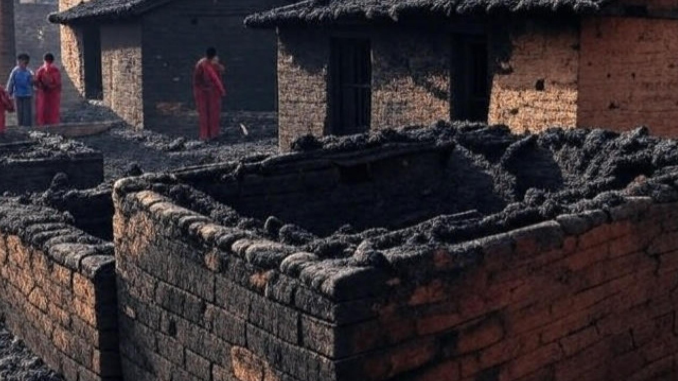
Nepal descended further into chaos on Tuesday as violent anti-government protests spiraled out of control, leaving former Prime Minister Jhalanath Khanal’s wife dead, the Prime Minister’s residence under siege, and major government landmarks in flames.
IndiaToday reports that Rabi Laxmi Chitrakar, wife of Khanal, succumbed to severe burn injuries after protesters torched their family home in Dallu, Kathmandu. According to local outlet Khabar Hub, she was rushed to Kirtipur Burn Hospital but could not be saved.
The shocking incident unfolded as Gen-Z-led demonstrations—sparked by a controversial social media ban—raged into their second day despite the government’s announcement lifting the restrictions. Instead of calming the streets, the reversal only fueled the anger of protesters who demanded Prime Minister KP Sharma Oli’s immediate ouster.
By Tuesday evening, the death toll had climbed to at least 22, with over 300 others wounded in clashes.
Protesters launched coordinated attacks on symbols of state power, torching Singh Durbar—the nerve center of Nepal’s administration—along with Sheetal Niwas, the presidential residence.
Homes of President Ram Chandra Paudel, Prime Minister Oli, and former premiers Pushpa Kamal Dahal “Prachanda” and Sher Bahadur Deuba were also set ablaze.
In one of the most brazen assaults, protesters stormed Deuba’s residence, where he and his wife, Foreign Minister Arzu Rana Deuba, were reportedly attacked. Offices of major political parties also came under siege.
Facing a furious youth uprising and abandoned by the military, Prime Minister Oli was forced to bow out. His aide, Prakash Silwal, confirmed that he tendered his resignation, declaring in his letter that he was stepping down “to facilitate a solution to the problem and to help resolve it politically.”
According to army insiders, Oli had earlier pleaded with Nepal Army Chief General Ashok Raj Sigdel for protection and military intervention to crush the unrest. But the Army Chief bluntly advised him to resign, warning that the institution could only restore order once political leadership had vacated power.
